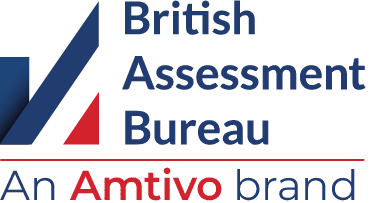Since 2009, the Hilton hotel chain’s environmental management systems (certified to ISO 14001) have helped the international hotel group improve performance, conserve resources, and minimise impact across its portfolio.
Today, Hilton tracks progress through LightStay – its own global system for tracking energy, water, waste, and community impact across its hotels – against 2030 goals set from a 2008 baseline, reporting reductions in energy, water, waste, and carbon intensity. The organisation’s initiatives have enabled teams to share best practices, contributing to utility cost savings of over $1 billion.
Hilton’s corporate responsibility strategy, Travel with Purpose, has driven positive social impact around the world while supporting long‑term business success. In 2024, Hilton operated more than 8400 properties across approximately 140 countries and territories, serving over 224million guests and employing 492K team members.
Since 2008, the company has reported the following environmental achievements:
- 48.1% reduction in Scope 1 and 2 carbon emissions intensity (managed hotels) against the 2008 baseline, on the way to a 75% reduction by 2030.
- 32.7% reduction in Scope 3 carbon emissions intensity (franchised hotels) against the 2008 baseline, targeting 56% by 2030.
- 36.3% reduction in water use intensity (managed operations), toward a 50% reduction by 2030.
- 60.6% reduction in landfilled waste intensity (managed operations), achieving the 2030 goal of 50% reduction in 2023.
Hilton has partnered with respected international organisations, including WWF (World Wildlife Fund), to preserve natural resources and reduce environmental impact across hotels worldwide. This includes long‑standing food waste reduction work through the Hotel Kitchen food waste reduction platform, low‑waste event guidance, and wider initiatives such as Winnow AI food waste management systems in nearly 200 hotels across 40 countries, saving an estimated 3.9M meals annually.
Innovative waste strategies for businesses.
How ISO 14001, ISO 9001 and ISO 50001 Enable Hilton’s Shared Value Strategy
The organisation revealed that it uses ISO standards to help manage their efforts. The organisation has achieved certification to ISO 14001 for environmental management, ISO 9001 for quality management and ISO 50001 for energy management across its entire hotel portfolio – an incredible achievement which has set a precedent for the £billion industry. In 2024, Hilton also earned an EcoVadis Silver medal (top 15%) and featured in the Dow Jones Sustainability Indices (World and North America) and S&P Global’s Sustainability Yearbook.
Hilton has shown that what gets measured, gets done. The first step in reducing environmental impact is for organisations to measure their current position. Involving all staff can provide an impression of what is needed and what can be changed or removed entirely to improve the business’s carbon footprint. Areas to consider when assessing your current environmental position might include the use of lighting, turning off electrical equipment, recycling and so on.
The little things add up. Hilton’s playbooks and checklists, such as the Water Efficiency Playbook (offering strategies to save water while ensuring exceptional guest experiences) and Sustainable Design Checklists (providing guidelines for owners and developers to build and renovate more sustainable hotels) help hotels implement consistent, practical measures, from LED transitions and efficient fixtures to EV charging, which is now available at over 1900 hotels.
Hilton has demonstrated that it has bought into Creating Shared Value by partnering with WWF. Could you partner with a local charity based upon seeking feedback from your employees? Companies have moved away from simply cash donations, to providing their time. For example, Hilton Global Foundation grantees reported distributing over 1.6million meals and donating more than 1.5million lb of food in 2024, while Travel with Purpose Week saw over 72,000 volunteer hours across more than 1200 events.
How to create an environmentally friendly workplace.
The Importance of Sustainability for Businesses
According to a 2025 Ipsos survey, 66% of Britons rate the environmental impact of a product, service, or brand as very or somewhat important when making purchasing decisions. Sustainability considerations are growing, especially among younger consumers aged 16-34, where 56% say environmental impact has become more important compared to a year ago.
ISO 14001 is a widely used Environmental Management System Standard that helps organisations manage and reduce environmental impact.
Knowing you have met global best practice for environmental management is a huge reward for organisations. Plus, 69% of our clients who have achieved certification say it has helped them succeed in winning new work.
Read our ISO 14001 guide to understand how this certification can streamline your Environmental Management System.


